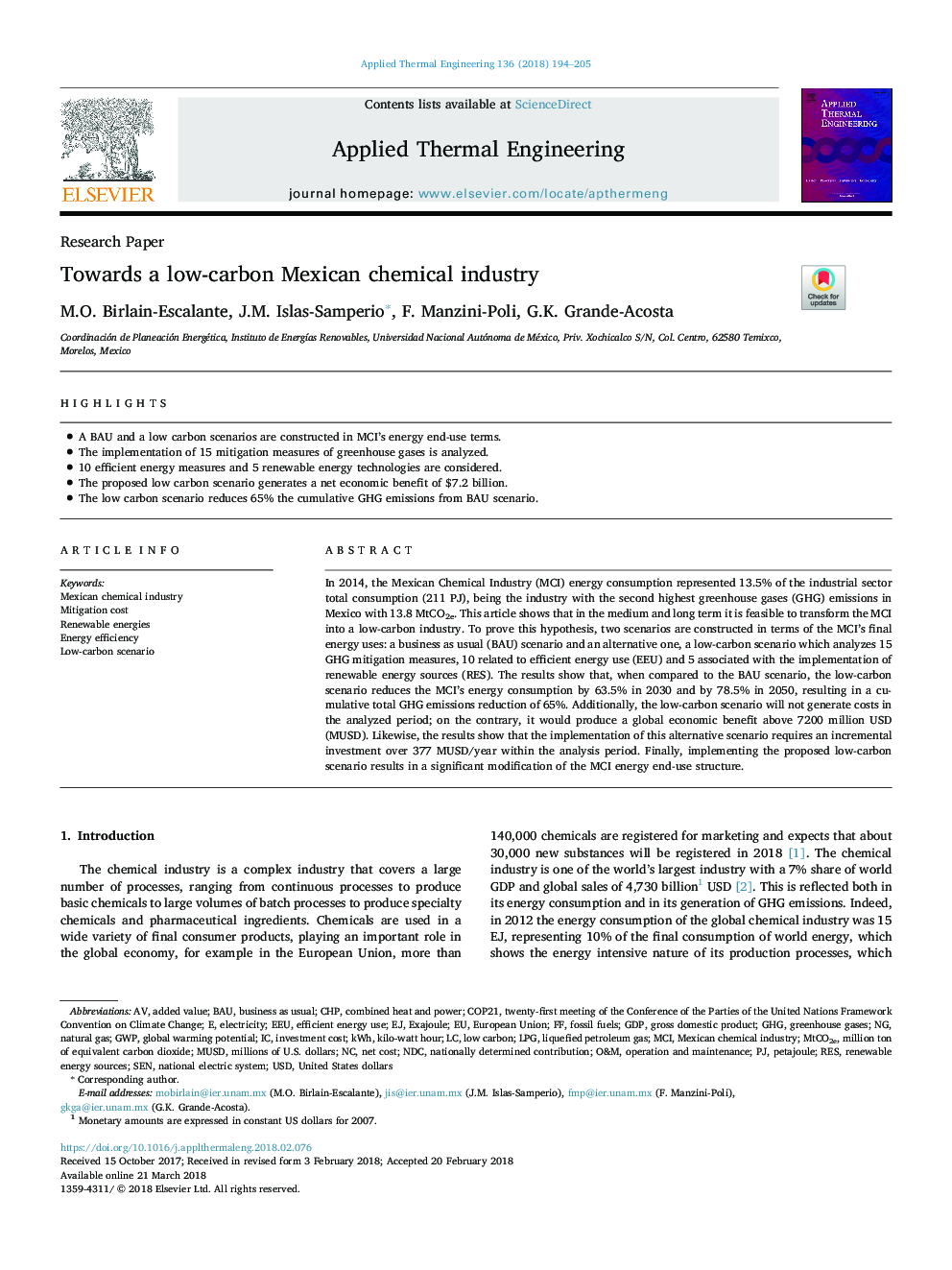| Article ID | Journal | Published Year | Pages | File Type |
|---|---|---|---|---|
| 7045554 | Applied Thermal Engineering | 2018 | 12 Pages |
Abstract
In 2014, the Mexican Chemical Industry (MCI) energy consumption represented 13.5% of the industrial sector total consumption (211 PJ), being the industry with the second highest greenhouse gases (GHG) emissions in Mexico with 13.8 MtCO2e. This article shows that in the medium and long term it is feasible to transform the MCI into a low-carbon industry. To prove this hypothesis, two scenarios are constructed in terms of the MCI's final energy uses: a business as usual (BAU) scenario and an alternative one, a low-carbon scenario which analyzes 15 GHG mitigation measures, 10 related to efficient energy use (EEU) and 5 associated with the implementation of renewable energy sources (RES). The results show that, when compared to the BAU scenario, the low-carbon scenario reduces the MCI's energy consumption by 63.5% in 2030 and by 78.5% in 2050, resulting in a cumulative total GHG emissions reduction of 65%. Additionally, the low-carbon scenario will not generate costs in the analyzed period; on the contrary, it would produce a global economic benefit above 7200 million USD (MUSD). Likewise, the results show that the implementation of this alternative scenario requires an incremental investment over 377 MUSD/year within the analysis period. Finally, implementing the proposed low-carbon scenario results in a significant modification of the MCI energy end-use structure.
Keywords
RESNDCGHGCOP21LPGLow-carbon scenarioCHPGWPMUSDO&MBaUSENEuropean UnionAdded valueElectricityRenewable energiesEnergy efficiencyCombined Heat and PowerGross domestic productGDPUnited States dollarsUSDFossil fuelsoperation and maintenanceEEURenewable energy sourcesInvestment costMitigation costMCIglobal warming potentialpetajouleBusiness as UsualLow carbonkWhNatural gasliquefied petroleum gasGreenhouse gases
Related Topics
Physical Sciences and Engineering
Chemical Engineering
Fluid Flow and Transfer Processes
Authors
M.O. Birlain-Escalante, J.M. Islas-Samperio, F. Manzini-Poli, G.K. Grande-Acosta,
